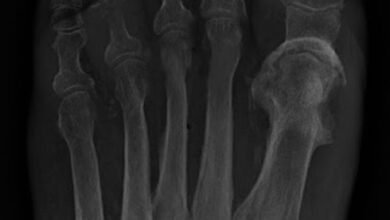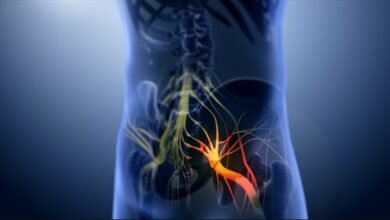
The Mediterranean sea is associated with good weather, summer, swimming, and colorful plants, but have you ever heard of Mediterranean fever?
Please read along, to learn more about the symptoms, treatment, and complication prevention methods for Mediterranean fever disease.
What is Mediterranean fever?
Familial Mediterranean Fever is also known as Armenian disease, peritoneal peritonitis, or periodic familial serositis.
It is the most common autoinflammatory disease.
An inherited genetic defect (MEFV gene) causes the disease.
This genetic imbalance disrupts the proportion of pyrin protein responsible for regulating the response of the body’s immune system and inflammations.
It primarily affects patients in the Mediterranean region and the Middle East, specifically Armenians, Arabs, Turks, Jews, Italians, and Greeks.
Symptoms of Mediterranean fever
Symptoms include the following:
- Severe and frequent attacks of fever with severe abdominal, chest, and joint pain.
- Attacks start within two to four hours and last from 12 hours to three days.
- The severity of symptoms varies each time, and periods between attacks vary from one week to several years.
- There are no symptoms in between episodes.
- Some patients may feel symptoms before the attacks, such as nausea, anxiety, stress, and muscle pain.
- Some patients link attacks to specific triggers, such as; stress, cold exposure, extreme exertion, recent infectious disease, surgery, or menstrual period.
- Symptoms become less severe with more frequent gaps with age.
Let’s talk in detail about some of these symptoms:
Fever
It is the most common symptom, and maybe the only one, especially during childhood.
The temperature ranges from 38°C to 40°C.
Abdominal pain
More than 90% of patients experience abdominal pain that varies in severity from mild (such as flatulence) to acute peritoneal inflammation.
It begins in a small part of the abdomen and spreads throughout, resembling appendicitis or acute gallbladder inflammation.
The appendix or gallbladder may be removed, sometimes due to a misdiagnosis without knowing whether it is acute appendicitis, gallbladder inflammation, or Mediterranean fever!
Symptoms can last up to three days and then vanish as quickly as they appeared.
Chest pain
Patients suffer chest pain due to inflammation of the pleural membrane and most often only one side, and the pain increases with deep breathing or cough.
Joint pain
Patients experience severe joint pain in one or more large joints such as the knee, thigh, or ankle joint, and small joints rarely suffer any adverse effects.
Infected joints become limited in movement and completely recover after the seizure, leaving no deformity in those joints.
Muscles pain
There may be muscle pain, which could be in the upper or lower part of the body.
Rash and redness
Rash and redness in the skin of the lower limbs, particularly the foot, ankles, and feet, can occur in some cases.
Mediterranean fever complications
Amyloidosis is the most serious complication of familial Mediterranean fever.
It affects the digestive system, liver, spleen, heart, and lungs.
Amyloidosis is caused by amyloid protein deposition in body tissues, affecting its vital functions.
The kidneys are most affected by amyloidosis, leading to nephrotic syndrome and renal failure.
Mediterranean fever diagnosis
Diagnosis depends on the history of illness, clinical examination, and some of the following tests:
- A high number of white blood cells.
- High ESR (erythrocyte sedimentation rate).
- Elevated C-reactive protein (CRP) titer.
- High serum amyloid A.
- CT scans on the abdomen and pelvis to exclude other similar diseases.
- Patient’s molecular genetic sequence and identification of the mutated gene (MEFV gene) to; confirm the diagnosis.
Mediterranean fever medication
The following medications are available treatments:
Colchicine for Mediterranean fever
Colchicine is the primary treatment for Mediterranean fever and is; extremely beneficial to patients in the following situations:
- Treatment of acute attacks.
- Seizure prevention and spacing.
- Prevention of amyloidosis and its complications.
Colchicine is the treatment of choice to prevent attacks, and the dose is increased in case of acute attack exacerbation.
Colchicine is used safely during pregnancy and lactation.
The most common side effects of colchicine are vomiting, diarrhea, abdominal pain, and rarely other severe side effects.
Interleukin-1 (IL-1) inhibitors
Anakinra or Canakinumab are used in the following cases:
- Failure to respond to colchicine.
- Colchicine intolerance; due to serious side effects after taking (rare).
It has not been established that; Anakinra or Kanakinumab play a role in preventing amyloidosis.
Mediterranean fever and marriage
The gene responsible for Mediterranean fever is recessively inherited.
The disease appears if the father and mother carry the mutation together and the fetus inherits it from both parents.
Many specialists do not recommend premarital genetic studies in simple and medium-severity cases because there is an effective treatment, such as colchicine.
However, premarital genetic tests are recommended in families with amyloidosis or complications.
Mediterranean fever in children

Symptoms of Mediterranean fever usually begin to appear in childhood before or after the age of 20.
High child temperature may also be the only symptom.
It occurs equally among female and male children.
Colchicine is the primary treatment for children with familial Mediterranean fever.
Mediterranean fever and pregnancy
Women wonder a lot about Mediterranean fever and pregnancy!
Symptoms vary significantly in pregnancy.
Pregnant women with the disease can enjoy a long period without any symptoms.
However, strong attacks of high temperature, joint, and abdominal pain may occur; that require an increased dose of colchicine.
The risk during pregnancy lies in peritonitis, which stimulates uterine constriction and thus leads to premature birth or miscarriage.
The use of colchicine during pregnancy is safe and effective and does not adversely affect pregnancy, and does not lead to fetal abnormalities or miscarriages.
Finally, Mediterranean fever is sometimes challenging to diagnose.
Fever, abdominal and joint pain are the main symptoms and respond well to colchicine therapy.



